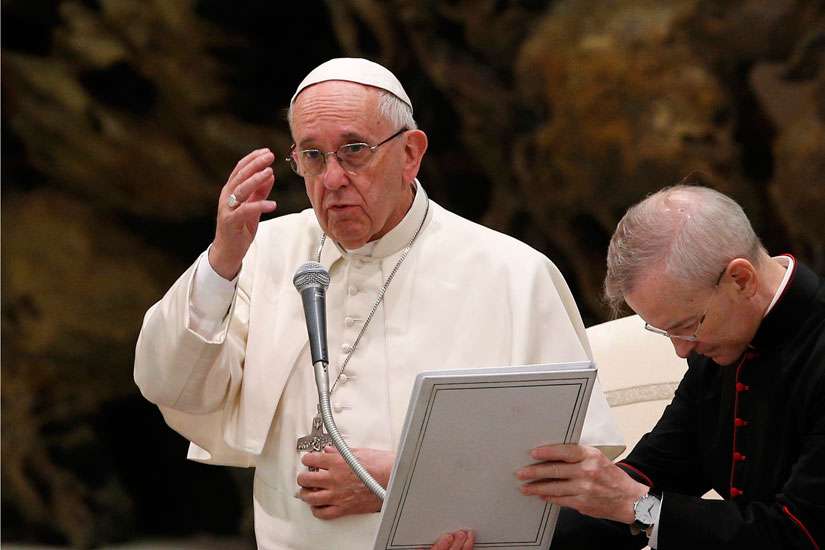Reflecting on the readings for the day which speak of the end of the world, of judgement and redemption for God’s faithful people, Pope Francis talked about corruption which led to the downfall of the great city of Babylon.
Corruption is a blasphemous way of living, the Pope warned, it’s the language of Babylon and worldly living. Corruption is a form of blasphemy where there is no God, he went on, but only the gods of money and wellbeing through the exploitation of others.
Yet this worldliness which seduces the powerful will be torn down, the Pope said, just as we hear the victory cry of the angel, in the reading from Revelation, announcing the fall of Babylon with its empire of vanity, pride and evil.
In contrast to the victory cry of the angel proclaiming the fall of this corrupt civilisation, Pope Francis said, there is another powerful voice of the great multitude praising God and saying: “Salvation, glory, and might belong to our God”. This is the voice of the people of God who will be saved because they are sinners but not corrupt, he stressed.
A sinner who knows how to ask for forgiveness and seeks salvation in Jesus Christ learns how to adore God, though this is not an easy task for Christians. We are good at praying when we’re asking for something, he said, but we must also learn how to praise God. Better to learn now, he added, than have to learn in a hurry when the end times come. The Pope insisted on the beauty of praying in front of the tabernacle, saying simply: “You are God, I am a poor child loved by You”.
Finally the Pope noted that in the reading there is a third voice, the whispering voice of the angel who tells the author to write: “Blessed are those who have been called to the wedding feast of the Lamb.” The Lord’s invitation is not a cry, but rather a gentle voice that speaks to the heart, the Pope said, just like the voice of God speaking to Elijah. When God speaks to our hearts in this way, he said, it is like a breath of silent sound.
This invitation to the wedding feast, according to the parable of Jesus, will be our salvation. Those invited include the bad and the good, the blind, the deaf and the lame, all of us sinners who have enough humility in our hearts to say: “I am a sinner and God will save me”.
The Gospel passage concludes by reminding us that “when these signs begin to happen” – that is the destruction of pride and vanity – “stand erect and raise your heads because your redemption is at hand”. May the Lord give us grace, the Pope said, to prepare ourselves and to listen to that voice saying “Come, come, come faithful servant – sinner but faithful – come to the wedding feast of your Lord”.


